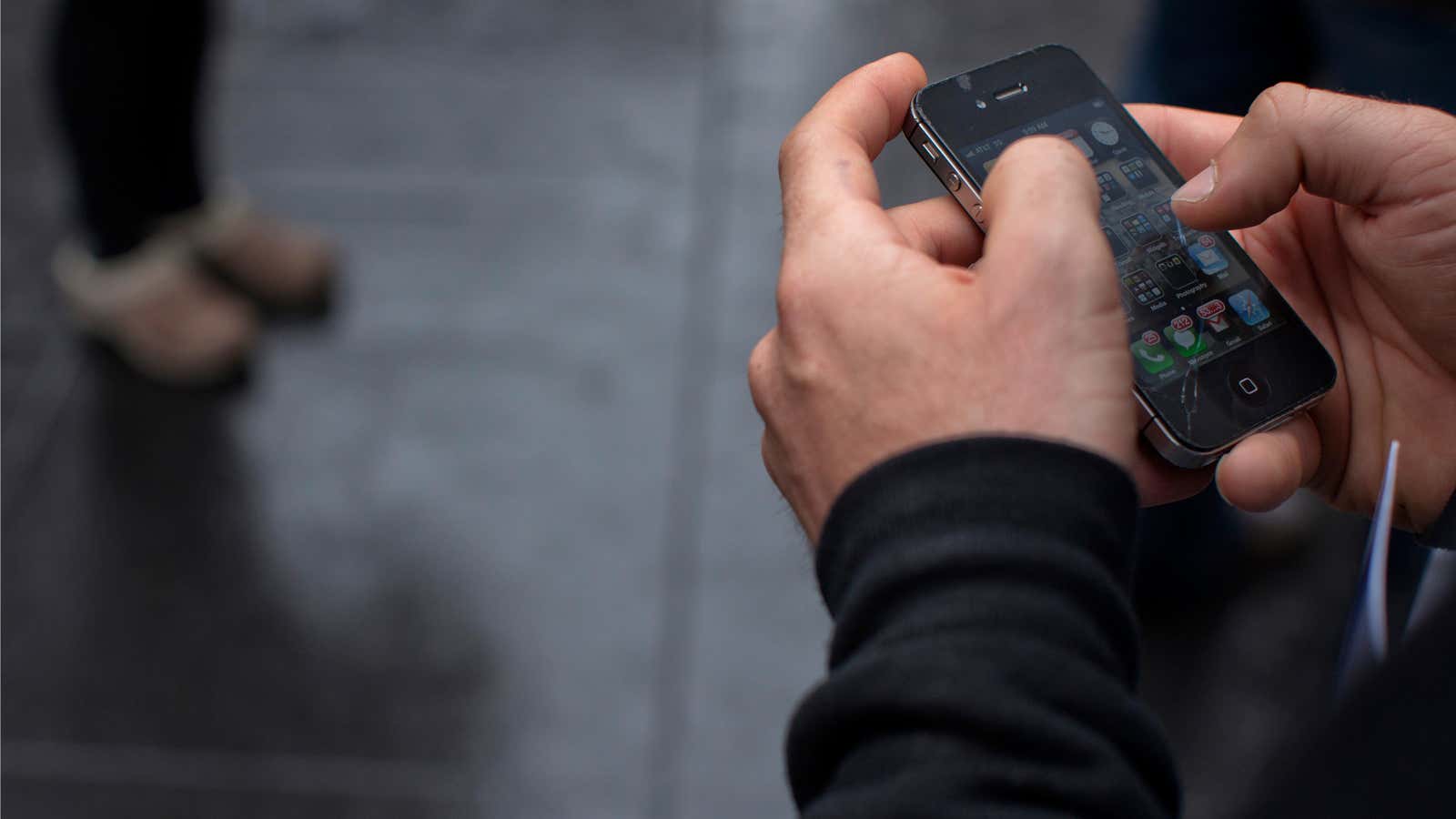It’s not just Big Brother looking over your shoulder and into your phone records; your boss is reading your text messages, too.
And the bot or software now is scanning your texts to see if you’re sharing company secrets or racy photos on your company mobile phone, as well as checking your email and web traffic.
There’s a rush to create and market text messaging apps for corporate use as texts are now used for closing deals and PR possibilities. As more employers add mobile messaging systems to workers’ phones, the scrutiny of workers’ SMS inbox is likely to increase.
Employers in the US and in many European countries must obtain the consent of workers to monitor texts and other electronic information. Typically that means “some notice posted somewhere, (possibly in a manual or before an employee uses the computer,” said David Jacobs, consumer protection counsel at the Electronic Privacy Information Center. “Once the employee agrees, almost anything is fair game.”
A majority of employers already monitor mobile phones and text messages, Jacobs estimates, and other research shows that two-thirds or more of employers use some type of electronic monitoring. A patchwork of state and federal laws provide some privacy protections, but most workers sign those away when they fill out hiring documents or when new policies take effect.
“One limit to the amount of employer coercion, at least for smartphones, is the Computer Fraud and Abuse Act. The CFAA prohibits intentional access to a computer without authorization to obtain information, and depending on the level of coercion (e.g., “let me install a keylogger on your personal phone or you’re fired”), some monitoring could be considered unauthorized,” Jacobs noted.
While many companies have not begun to include text messages in their communications tools, many are recognizing its value.
“It can improve communication and productivity,” said Jim Patterson, a former Yammer executive and CEO of CoTap, which raised $5.5 million toward developing a business mobile messaging app. The first free version will be released in September with enhanced corporate mobile texting apps to follow.
In 2010, the US Supreme Court said employers could monitor worker text messages, as long as there was a “legitimate work-related purpose.”
“The likelihood of employers obtaining communications that employees’ consider private has risen substantially as technology has advanced,” University of Louisville professor Ariana R. Levinson wrote in a research paper on employees’ electronic monitoring.
Patterson said to treat company texts like email, only shorter. “Don’t text or email anything you wouldn’t want your boss seeing. That’s the safest course of action.”
Or if you want to duck the text reading altogether? Your best bet, Jacobs said, is to use your personal phone. Researchers say employers are far less likely to track you on BYOD-smartphones than on company issued ones.
